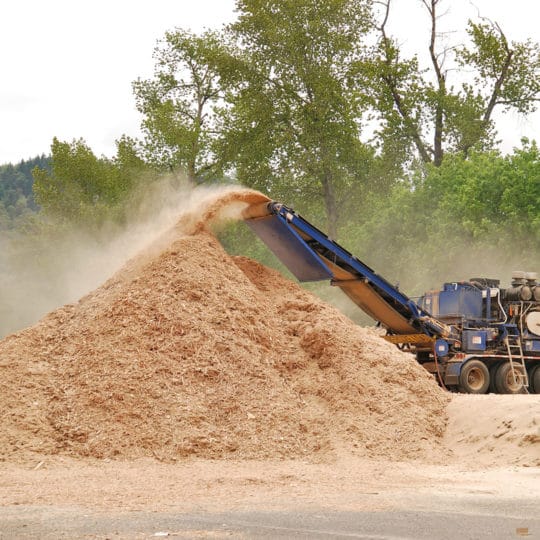The Problems with Wood Fibers in Soil Mixes
And What You Can Use Instead

When it comes to choosing the right media for your soil mix, you have options. Common choices are wood fibers, coco coir, rockwool, perlite, and vermiculite. Today we’re going to take a look at wood fibers in soil mixes and why it might not be the best option for your horticulture application.
Wood fibers were originally developed as an extender or replacement for peat moss. They are made from passing wood material through screw presses, and the resulting product looks like cotton wool. Wood waste or virgin wood can be used, but in both cases, there is little to no bark.
Wood fiber increases wettability and water capture better than peat alone. It can help wick water from sub-irrigated systems and move water throughout the container. It can be used in conjunction with peat moss to prevent splashing and channeling of water. Unfortunately, there are some drawbacks to this soil additive.
The Problem with Wood Fibers in Soil Mixes
- Wood decomposes in soil and loses its ability to aerate the soil mix, which is one of the top reasons to use a soil mix in the first place.
- It pulls nitrogen from the soil.
- Wood fibers have inherently high pH levels than other soil media, so the pH level will need to be tested and frequently adjusted.
- Wood fibers dry out quicker on the surface of the soil than other soil media mixes, so overwatering can be an issue if soil moisture is not tested at a deeper level.
Some of these issues present themselves over time, so perennial crops are most affected. For example, the decomposition process is slow, so wood fiber may not be as significant of a problem for annual plants.
Fortunately, if these concerns with wood fibers are deal-breakers for your growing needs, you do have other options, like perlite.
Why Choose Perlite as Your Soil Mix Media
Perlite is formed by molten rock, also known as volcanic glass, and is one of nature’s most versatile and efficient minerals. Perlite is a lightweight, non-organic soil conditioner that provides a number of important benefits to commercial growers, landscapers, and home gardeners, including:
1. No expiration date: Because perlite is inorganic, it remains stable and doesn’t compose or break down. It won’t mold or attract pests, making it virtually timeless.
2. Lightweight: Because of its light weight, perlite is easier to handle and store than other soil mix media.
3. Water retention: Perlite softens when headed rapidly in industrial furnaces, causing entrapped water molecules to turn to steam and expand the perlite particles up to 20 times its original size. The extra space absorbs water, helping keep roots moist while preventing over-watering. Win-win.
4. Prevents the need for other additives and chemicals: Horticultural perlite is free of organic contaminants, making it naturally pest- and disease-proof, negating the need for chemicals required to prevent and treat pests and diseases. Plus, it has an ideal pH range of 6.5 to 7.5, so you will not have to use other products to balance the pH.
5. Improved aeration: It breaks up compacted areas for better water drainage and also has a high displacement and volume capacity.
Choose Dicalite Management Group for Your Perlite Needs.
Our sales and technical services team work closely together to ensure you are getting the right product for your application. We know you’ll love the results of using perlite in your soil mix, so we’d like to send you a free sample. Call us today at 866-728-3303 to request a sample and learn about our other mineral offerings.
Join Our Mailing List
Our blog offers insight and information about new and exciting uses for perlite, diatomaceous earth, and vermiculite deriving from years of research and application. From passive fire resistance to mineral depth filtration, by subscribing to our mailing list, you will receive the latest information surrounding the Dicalite, Dicaperl, and Specialty Vermiculite brands and products.